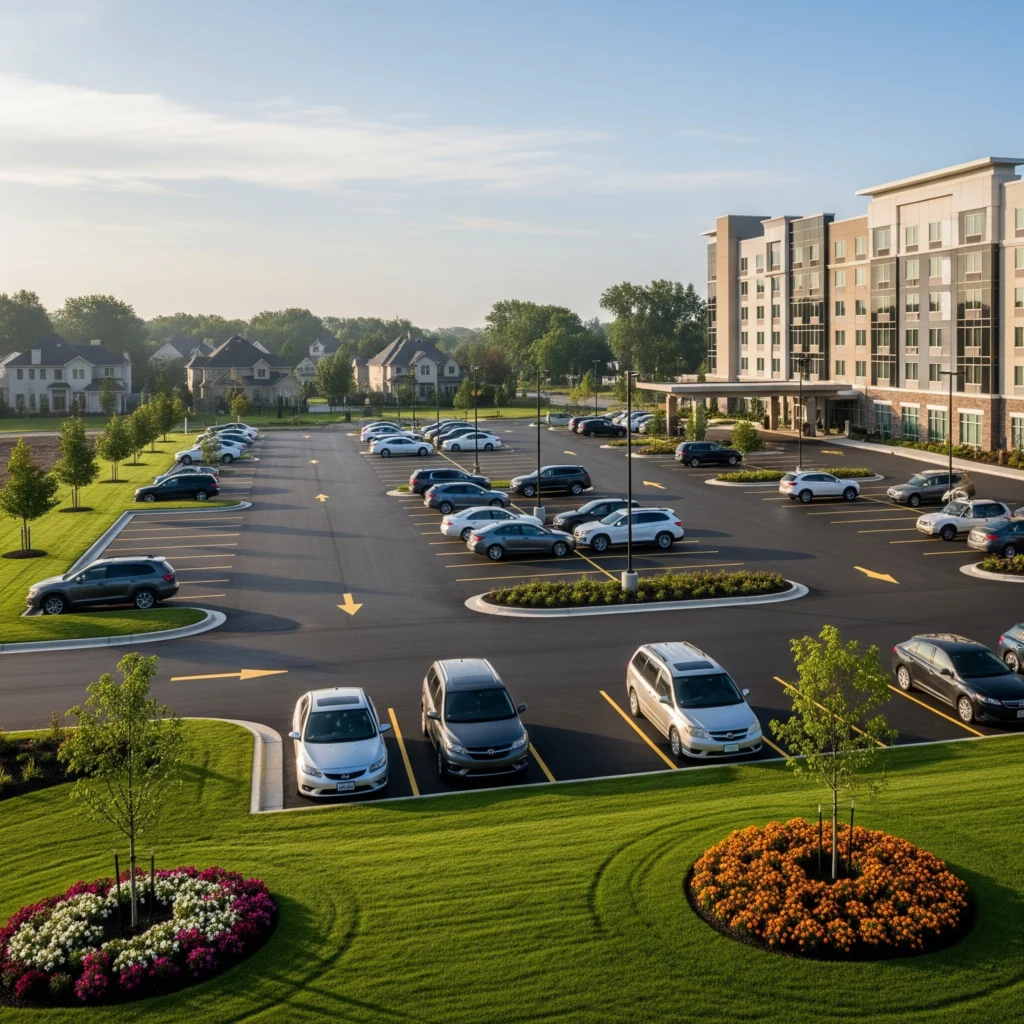I saw an article on Reddit regarding the trend for Marriotts charging for parking in non-urban locations. I had the same experience with a Hyatt Regency in Greenwich, Connecticut. It appears to be an evolving trend that’s frustrating travelers nationwide, hotels in suburban and non-urban areas are increasingly implementing parking fees—a charge once almost exclusively associated with downtown locations. This shift is turning what was long considered a standard, free amenity into an additional cost for guests. I know a shocker! Hotels are adding fees for amenities that used to be free.
For decades, suburban hotels with their sprawling surface lots were a reliable option for travelers seeking to avoid the high costs and logistical headaches of city parking. However, as hotels seek to boost revenue and recover from pandemic-era losses, they are now seeing these parking lots not as a free service, but as a source of profit.

The Reasons Behind the Charge
Revenue Generation: The most significant driver is simply to increase the hotel’s bottom line. Parking fees are a highly profitable income stream, often with high-profit margins.
Operating Costs: Hotels are facing rising operational costs, including labor, insurance, and property taxes. Parking fees are a way to offset these expenses and maintain profitability.
A La Carte Pricing: The trend is part of a broader industry move towards “drip pricing,” where hotels advertise a lower base room rate and then add on various fees—including for parking, resort amenities, and Wi-Fi—during the booking or check-in process. This tactic can make the initial price appear more attractive, even if the final bill is much higher.
The Guest Backlash
This practice has been met with significant frustration from guests. I am clearly one of them. This is a non-optional fee for an essential service, especially when the hotel is surrounded by a large, open parking lot. There is little transparency in these fees. They feel deceptive. It is difficult to compare prices between hotels with these types of fees.
Some hotel chains do disclose these fees when you book, mostly because they are required to under new laws like the No Hidden FEES Act. But most hotels are less transparent if they can get away with it. They like to copy the airline approach.
What This Means for Travelers
With the rise of these hotel parking fees, you need to be more vigilant in evaluating hotels. To avoid surprises, experts recommend:
Read the Fine Print: Carefully review the total cost breakdown before finalizing a booking. This is always difficult especially when they hide a bunch of these fees.
Call the Hotel: If parking fees are not clearly listed online, call the hotel directly and ask about any and all mandatory charges. Another hurdle that you need to clear to find out about fees.
Leverage Loyalty Programs: Some hotel loyalty programs, such as Hilton Honors and World of Hyatt, may waive certain fees for elite members, so it can be worthwhile to join.
Look for Alternatives: If a hotel is charging for parking in an area with plenty of free street parking or cheaper public garages, it may be a viable alternative to consider.
It is sad to say but the era of free and plentiful hotel parking in the suburbs is coming to an end. Hotels will continue to see if they can charge for services and amenities that used to be included in your hotel price. Next up may be a fee for daily housekeeping services!
